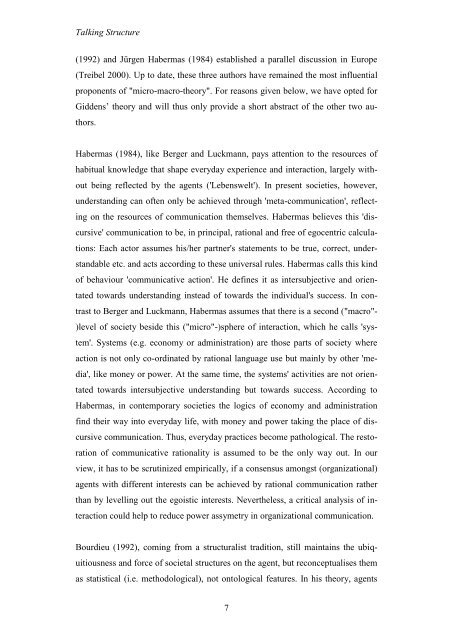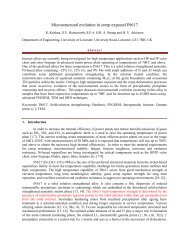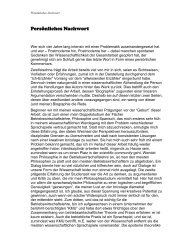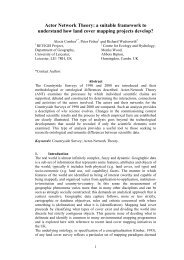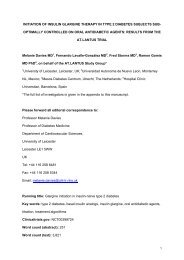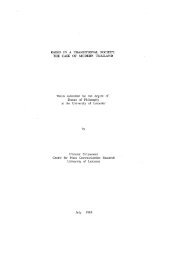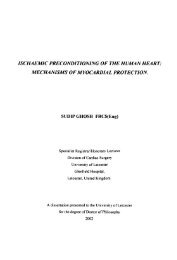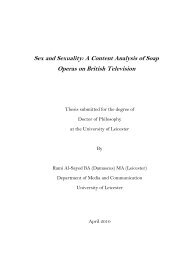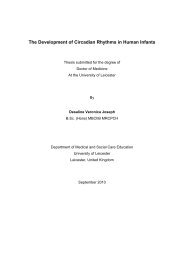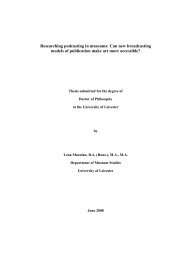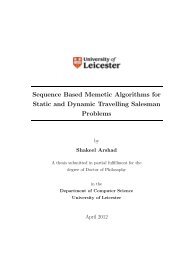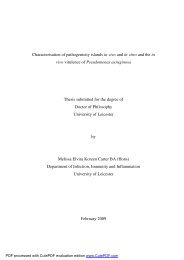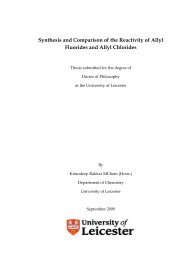In organisation theory, bridging the gap between „micro“ and „macro ...
In organisation theory, bridging the gap between „micro“ and „macro ...
In organisation theory, bridging the gap between „micro“ and „macro ...
You also want an ePaper? Increase the reach of your titles
YUMPU automatically turns print PDFs into web optimized ePapers that Google loves.
Talking Structure<br />
(1992) <strong>and</strong> Jürgen Habermas (1984) established a parallel discussion in Europe<br />
(Treibel 2000). Up to date, <strong>the</strong>se three authors have remained <strong>the</strong> most influential<br />
proponents of "micro-macro-<strong><strong>the</strong>ory</strong>". For reasons given below, we have opted for<br />
Giddens’ <strong><strong>the</strong>ory</strong> <strong>and</strong> will thus only provide a short abstract of <strong>the</strong> o<strong>the</strong>r two au-<br />
thors.<br />
Habermas (1984), like Berger <strong>and</strong> Luckmann, pays attention to <strong>the</strong> resources of<br />
habitual knowledge that shape everyday experience <strong>and</strong> interaction, largely with-<br />
out being reflected by <strong>the</strong> agents ('Lebenswelt'). <strong>In</strong> present societies, however,<br />
underst<strong>and</strong>ing can often only be achieved through 'meta-communication', reflect-<br />
ing on <strong>the</strong> resources of communication <strong>the</strong>mselves. Habermas believes this 'dis-<br />
cursive' communication to be, in principal, rational <strong>and</strong> free of egocentric calcula-<br />
tions: Each actor assumes his/her partner's statements to be true, correct, under-<br />
st<strong>and</strong>able etc. <strong>and</strong> acts according to <strong>the</strong>se universal rules. Habermas calls this kind<br />
of behaviour 'communicative action'. He defines it as intersubjective <strong>and</strong> orien-<br />
tated towards underst<strong>and</strong>ing instead of towards <strong>the</strong> individual's success. <strong>In</strong> con-<br />
trast to Berger <strong>and</strong> Luckmann, Habermas assumes that <strong>the</strong>re is a second ("macro"-<br />
)level of society beside this ("micro"-)sphere of interaction, which he calls 'sys-<br />
tem'. Systems (e.g. economy or administration) are those parts of society where<br />
action is not only co-ordinated by rational language use but mainly by o<strong>the</strong>r 'me-<br />
dia', like money or power. At <strong>the</strong> same time, <strong>the</strong> systems' activities are not orien-<br />
tated towards intersubjective underst<strong>and</strong>ing but towards success. According to<br />
Habermas, in contemporary societies <strong>the</strong> logics of economy <strong>and</strong> administration<br />
find <strong>the</strong>ir way into everyday life, with money <strong>and</strong> power taking <strong>the</strong> place of dis-<br />
cursive communication. Thus, everyday practices become pathological. The resto-<br />
ration of communicative rationality is assumed to be <strong>the</strong> only way out. <strong>In</strong> our<br />
view, it has to be scrutinized empirically, if a consensus amongst (organizational)<br />
agents with different interests can be achieved by rational communication ra<strong>the</strong>r<br />
than by levelling out <strong>the</strong> egoistic interests. Never<strong>the</strong>less, a critical analysis of in-<br />
teraction could help to reduce power assymetry in organizational communication.<br />
Bourdieu (1992), coming from a structuralist tradition, still maintains <strong>the</strong> ubiq-<br />
uitiousness <strong>and</strong> force of societal structures on <strong>the</strong> agent, but reconceptualises <strong>the</strong>m<br />
as statistical (i.e. methodological), not ontological features. <strong>In</strong> his <strong><strong>the</strong>ory</strong>, agents<br />
7


